« Help me do it alone! »
MARIA MONTESSORI
Inspired by Maria Montessori’s groundbreaking principles, we focus on experiential learning, independence, and individual growth.
Our thoughtfully prepared environment allows children to explore freely, make their own choices, and discover themselves. Montessori pedagogy is a lifelong learning journey.
- The absorbent mind: children have an innate ability to absorb information and learn from their environment. Therefore, a strong emphasis is placed on creating a stimulating environment and fostering a nurturing pedagogical approach by the educators.
- Sensitive periods: phases of heightened receptivity to specific learning areas – such as language. By recognizing and understanding these periods for each child, we can provide targeted activities that ignite their natural curiosity and foster their holistic development.
- Sensory exploration: By manipulating materials and experimenting through their 5 senses, children learn about abstract concepts in a concrete and stimulating way.
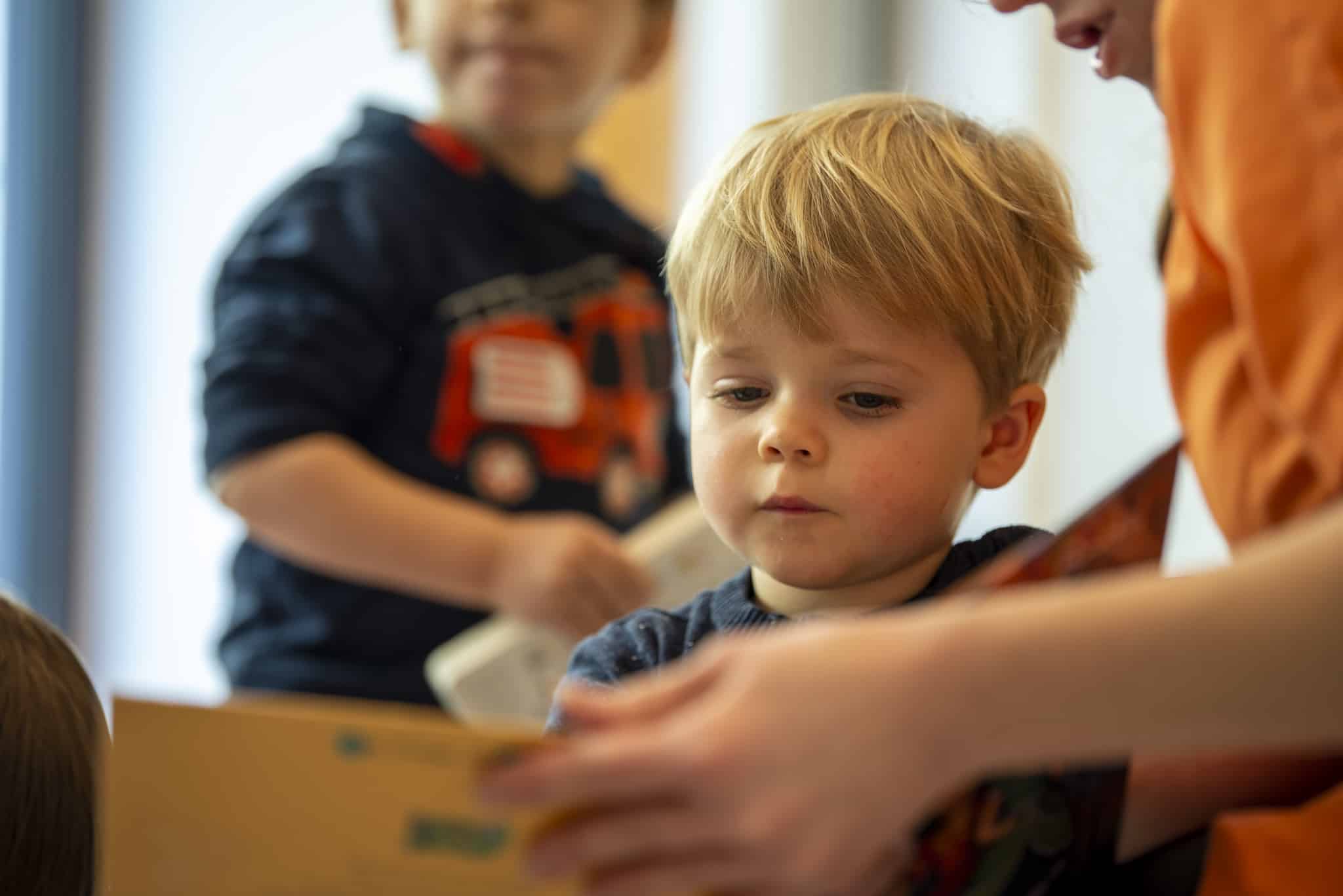
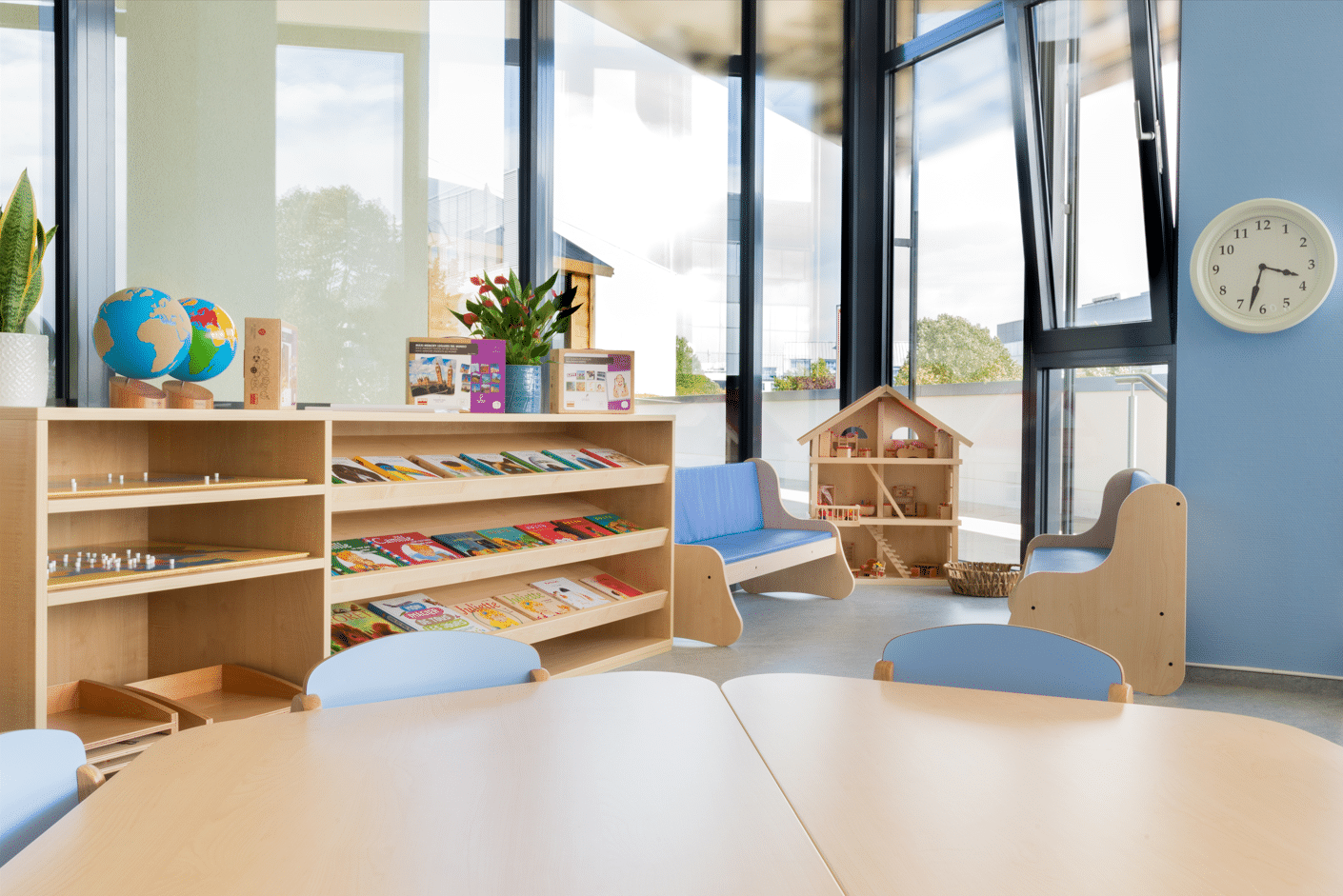
What is an ambience?
It’s a physical and emotional haven, a harmonious space that fosters children’s autonomy. Every aspect is meticulously prepared to create an orderly environment with distinct areas (quiet corners, dining areas, etc.) tailored to different developmental stages (in terms of accessibility and materials). This well-defined space serves as a home base for children, where they navigate rituals and engage in learning through the use of pedagogical materials. Children enjoy freedom within this secure setting, guided by the expertise of the educational team.
Le nido
A nurturing ambience for babies from 2 to 24 months. Sensory awakening, motor skills development, learning to walk… The Nido is specially designed to support babies’ development. With fixed landmarks and emotional security, everything is designed for gentle blossoming.
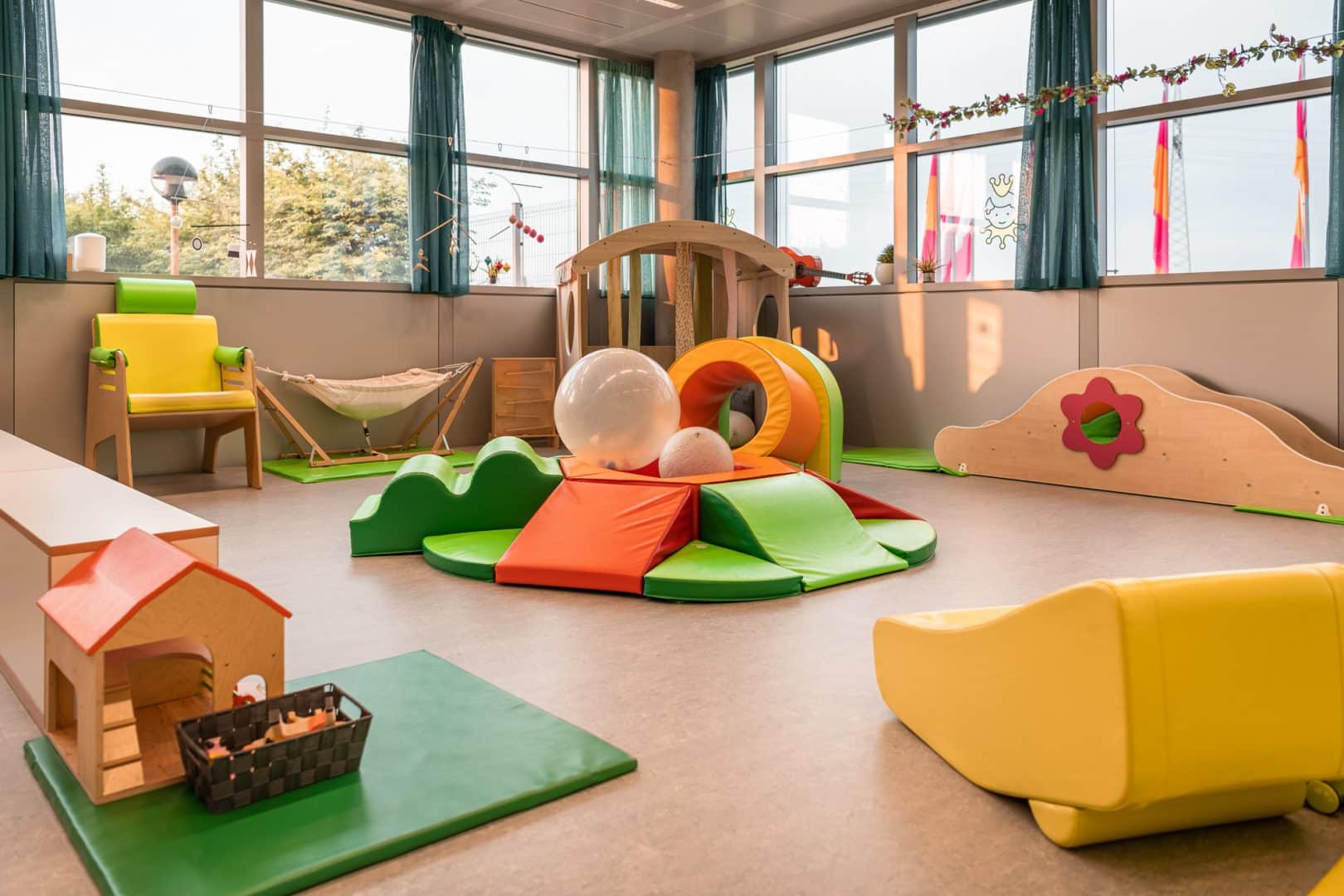
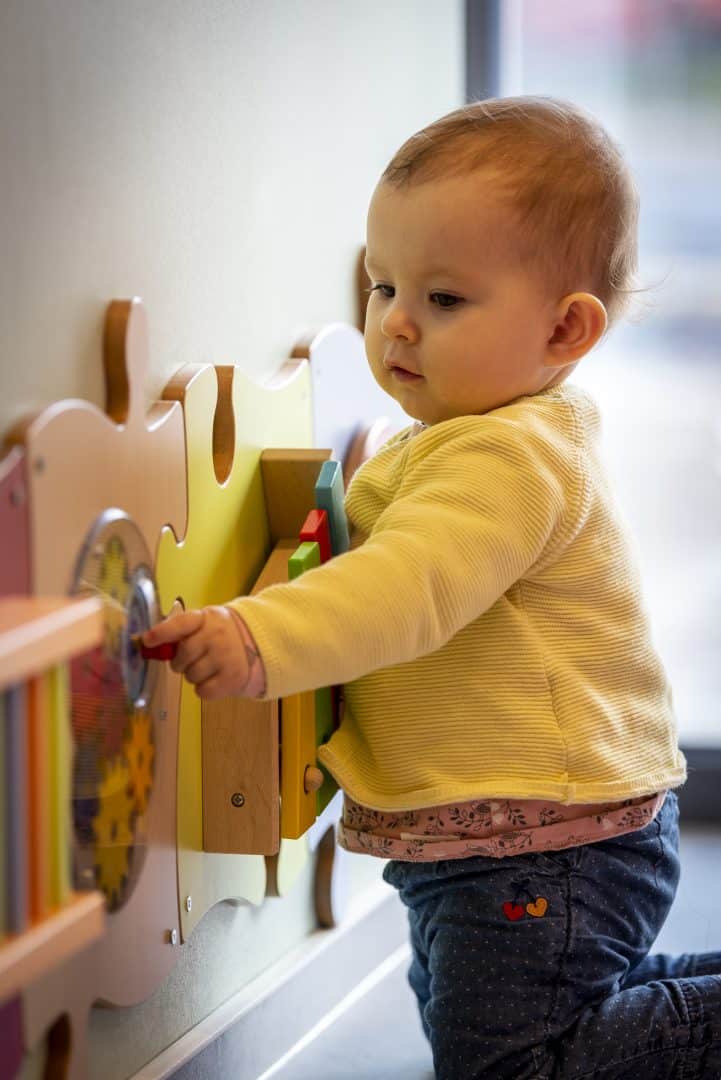
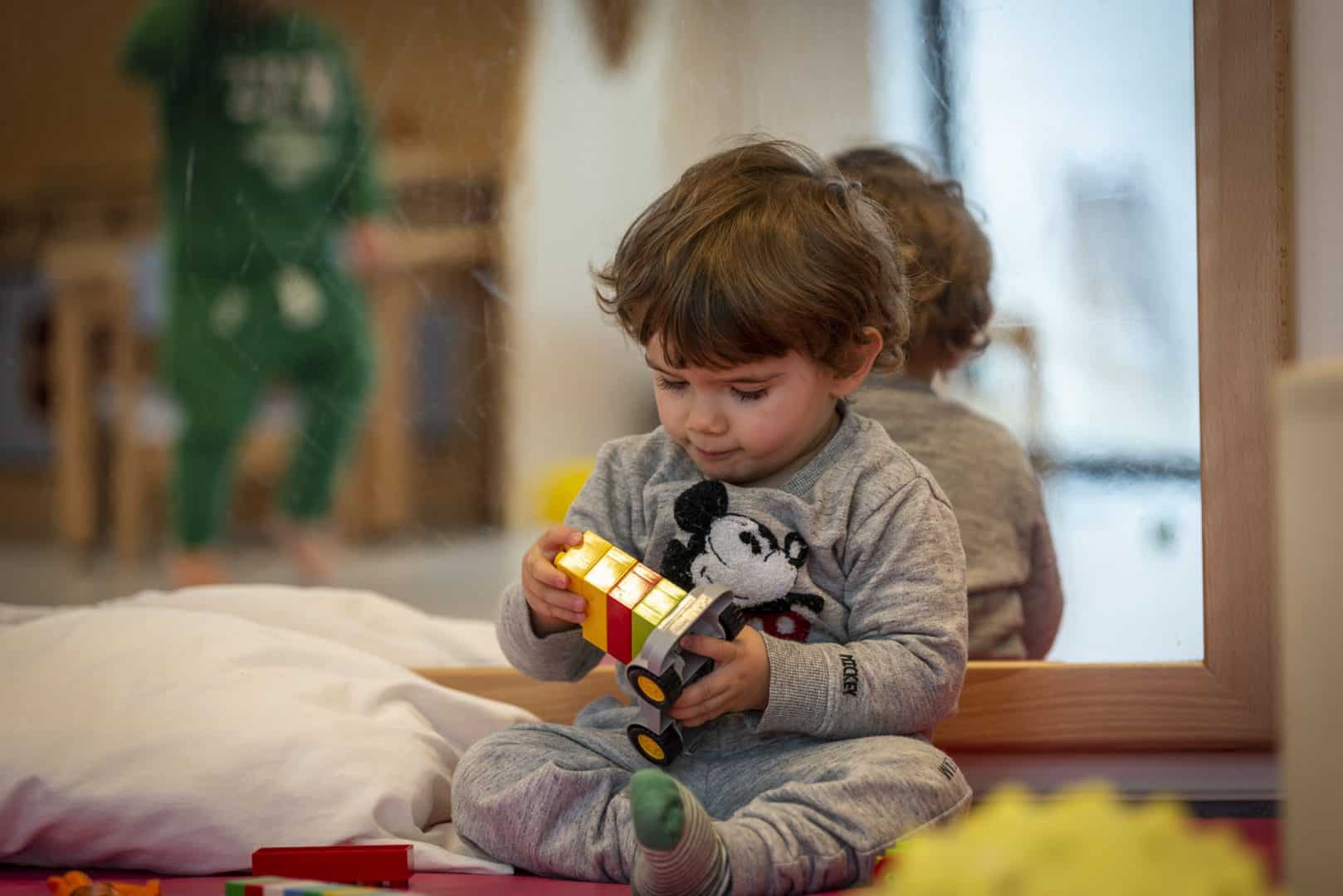
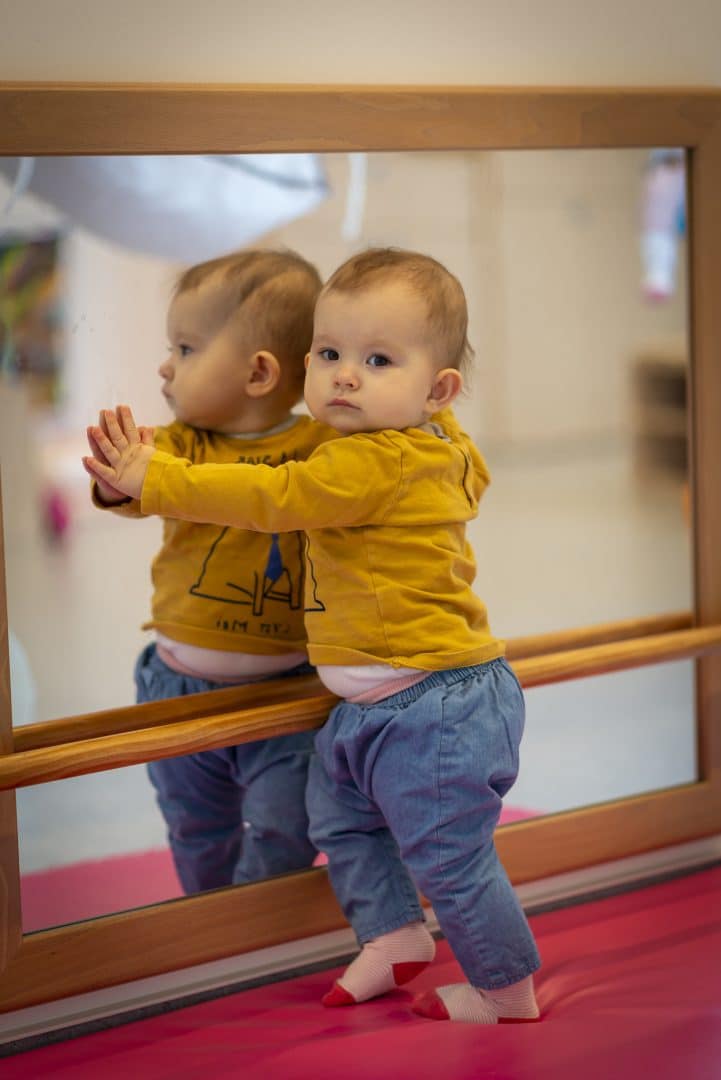
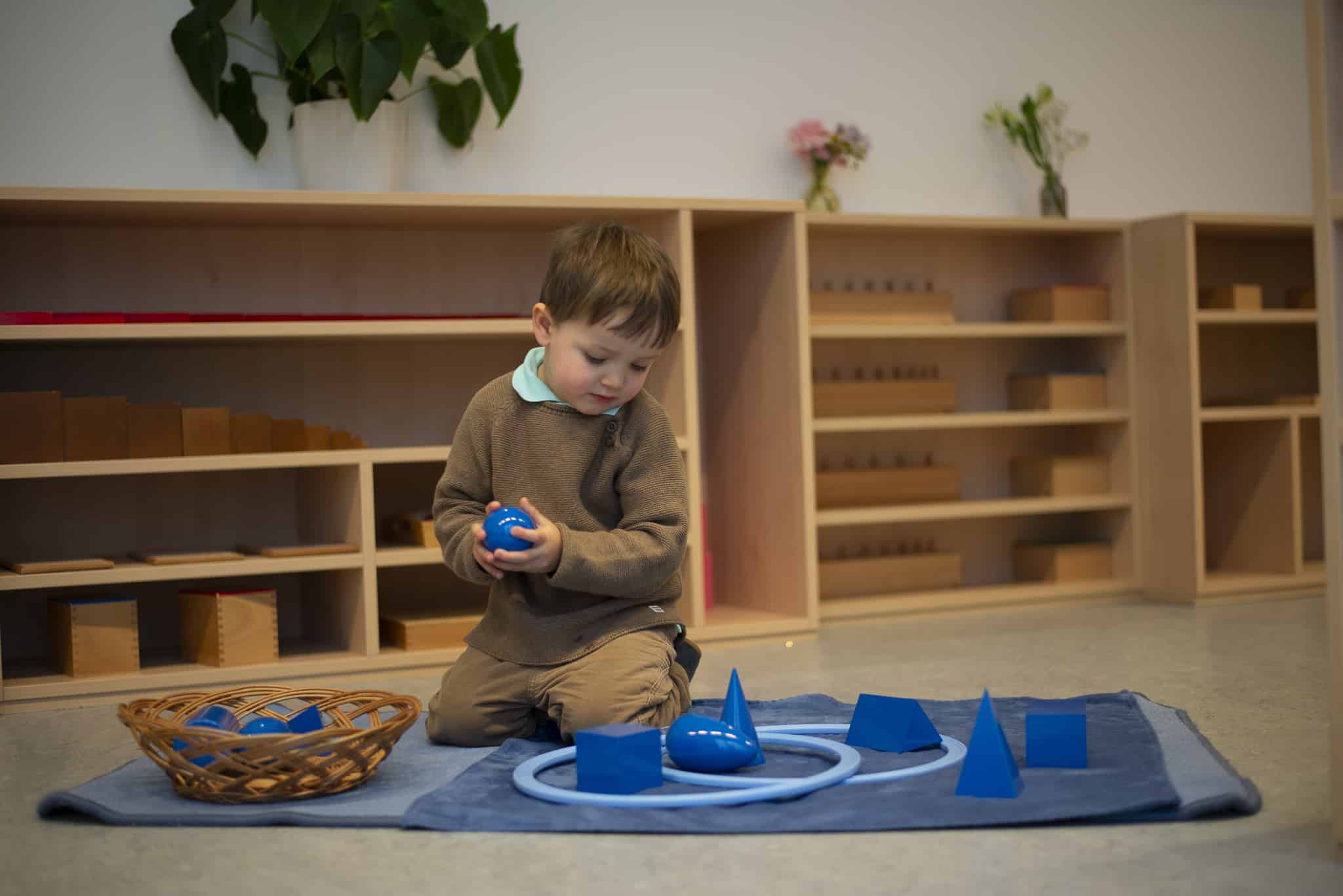
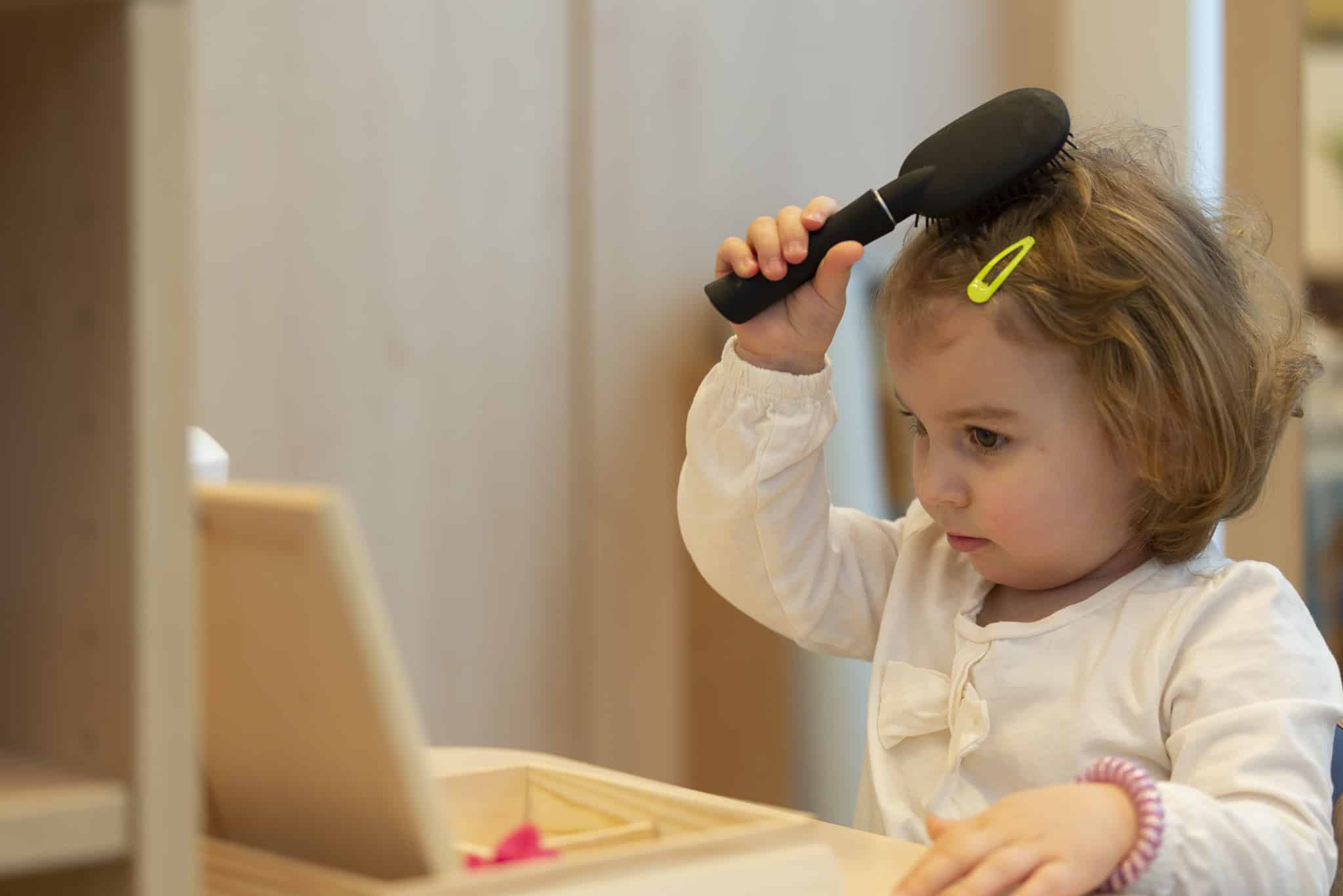
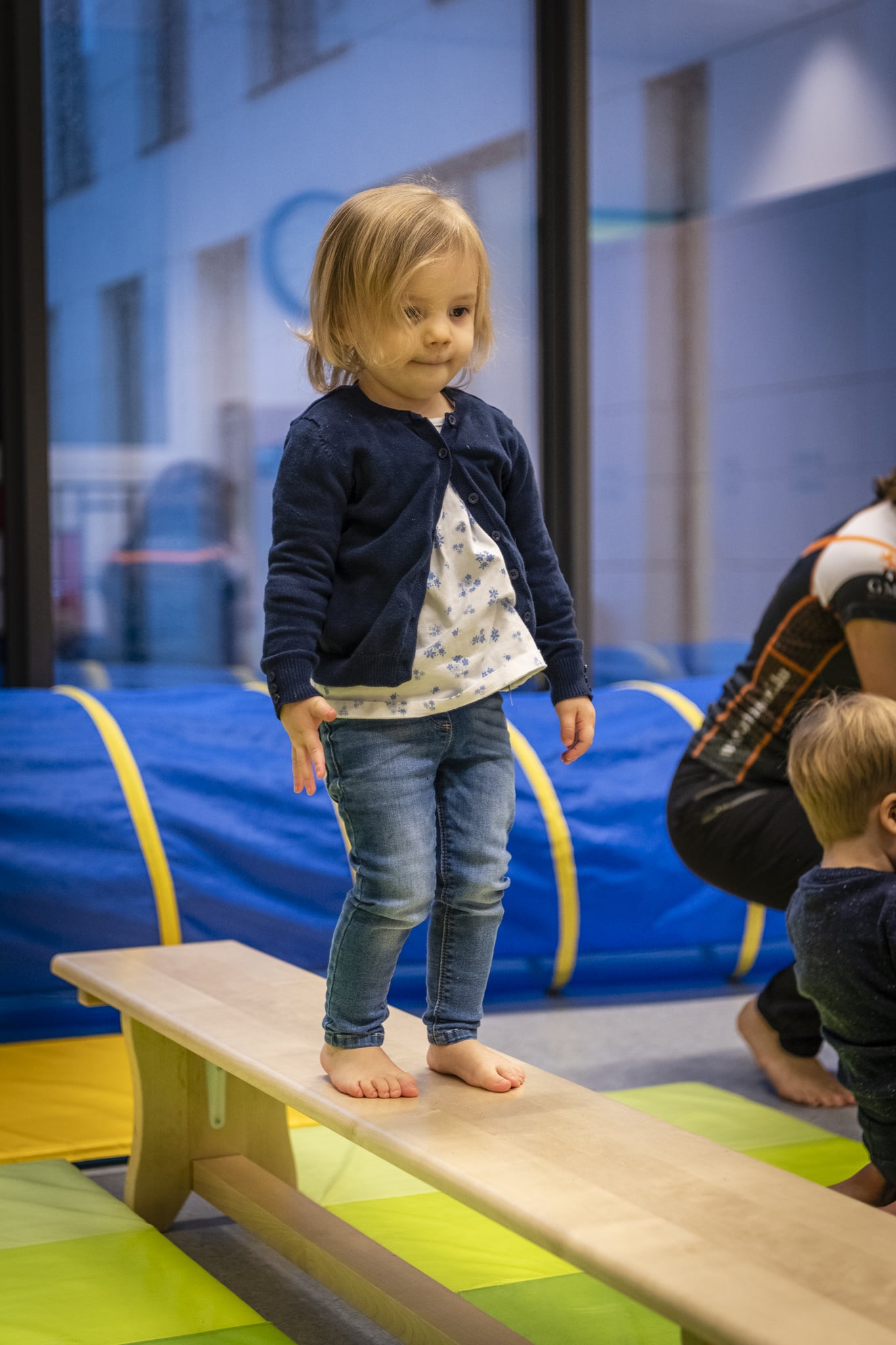
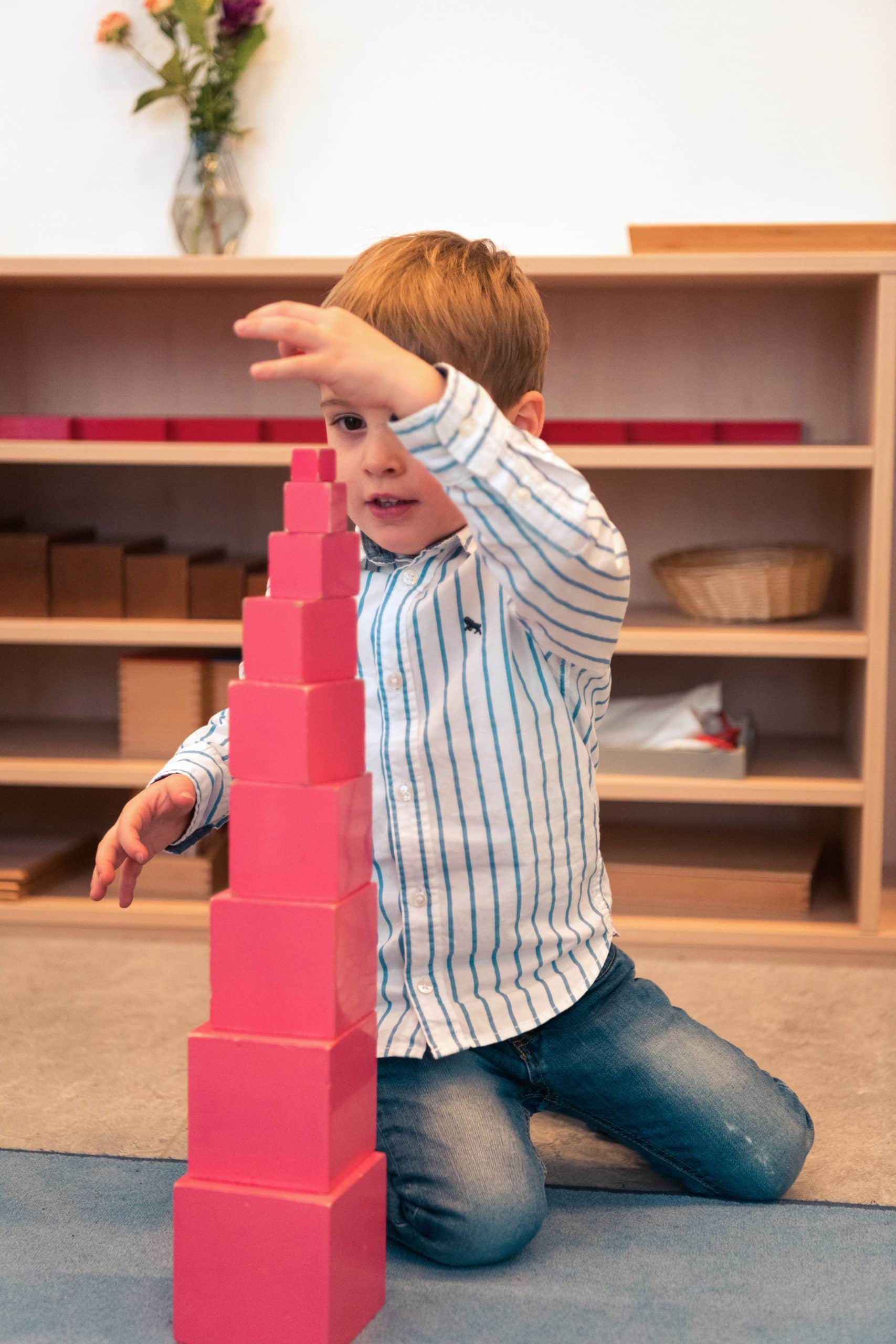
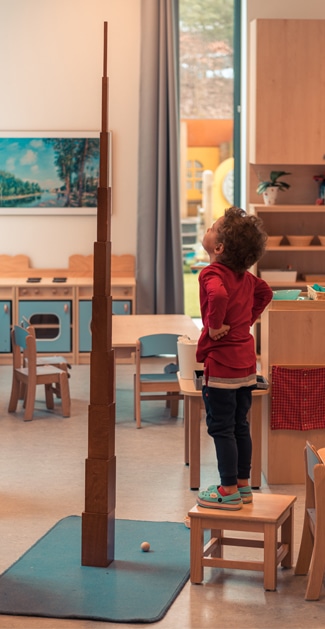
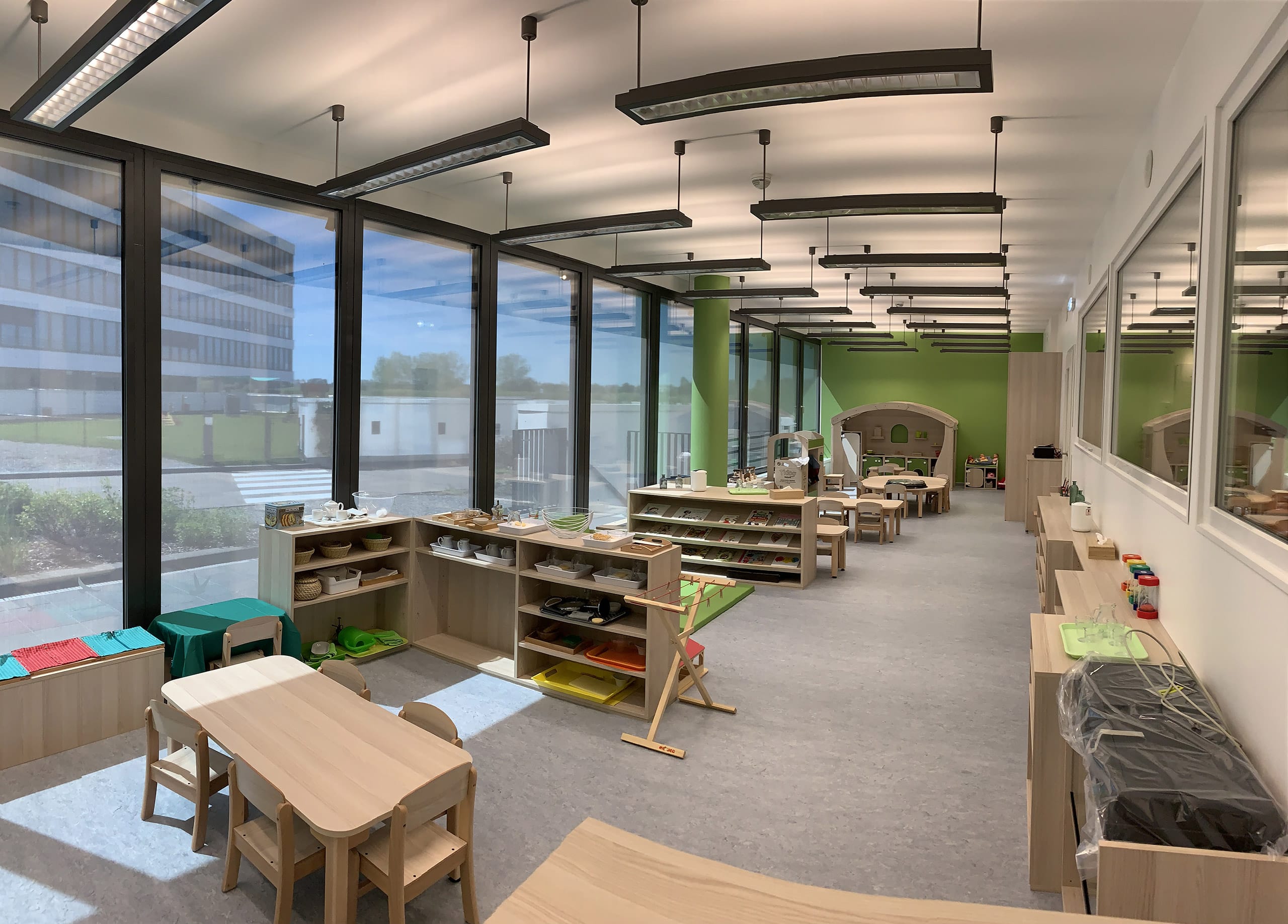
La communauté enfantine
An ambience for toddlers aged 2 to 3. Young children continue their quest for independence, developing their skills. Specific equipment and materials are available to meet every need – from gross motor skills, to the explosion of language, to fine psychomotor skills.
La maison des enfants
An ambience for children aged 3 to 4. They can deepen their existing knowledge, arouse their curiosity, and expand their skillset. Through engaging experiences and carefully curated materials, we introduce children to new learning opportunities, preparing them for a successful transition to school.
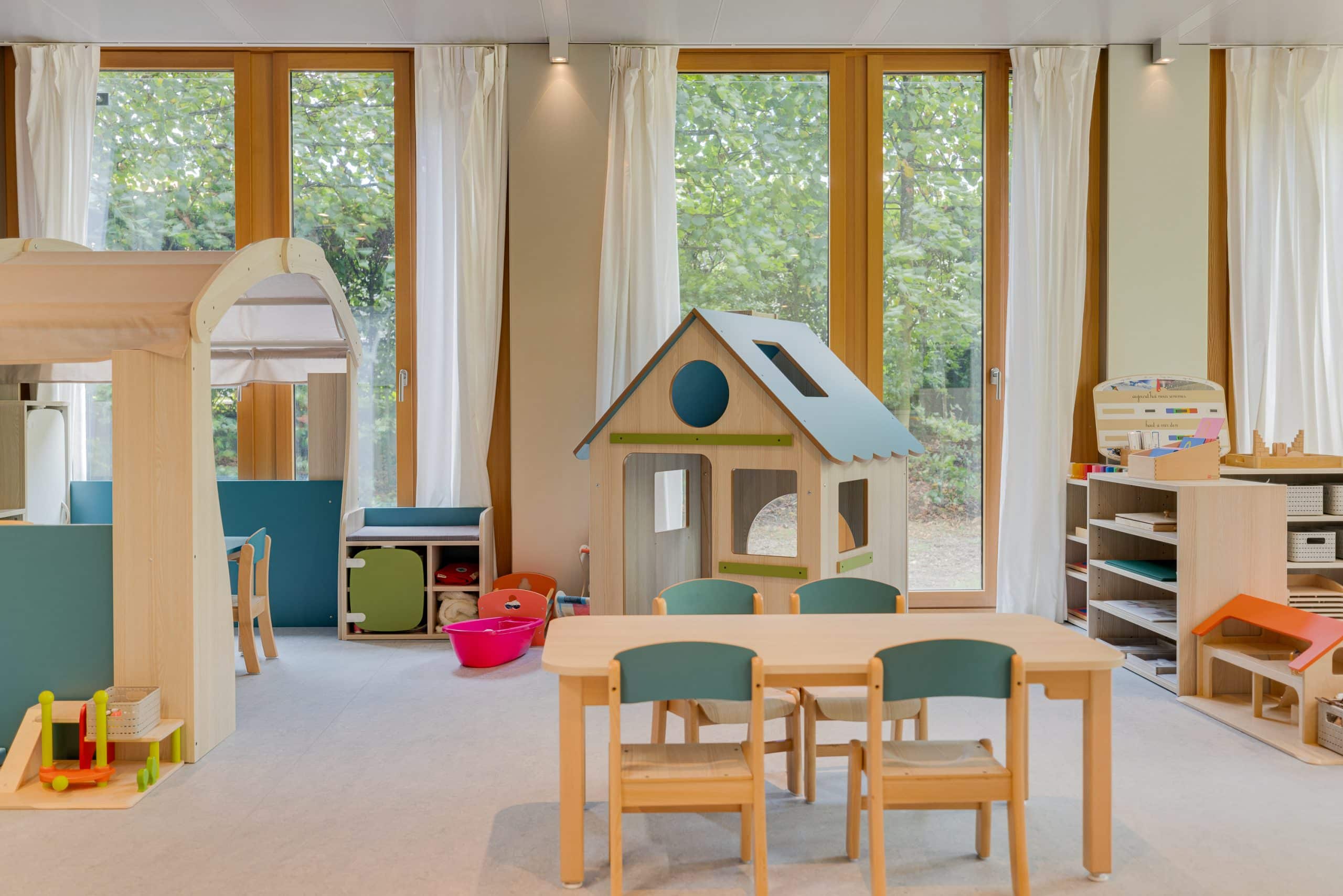
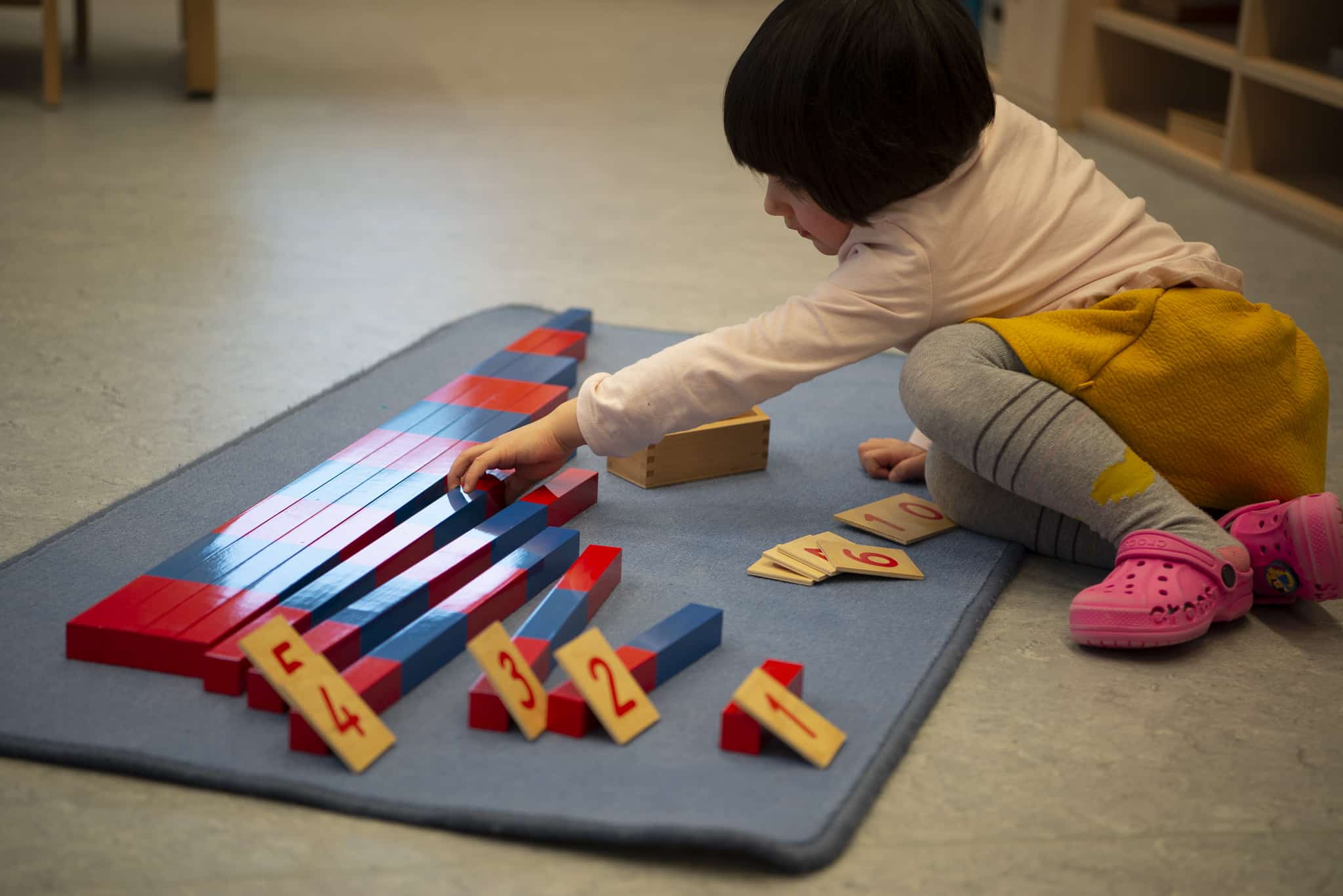
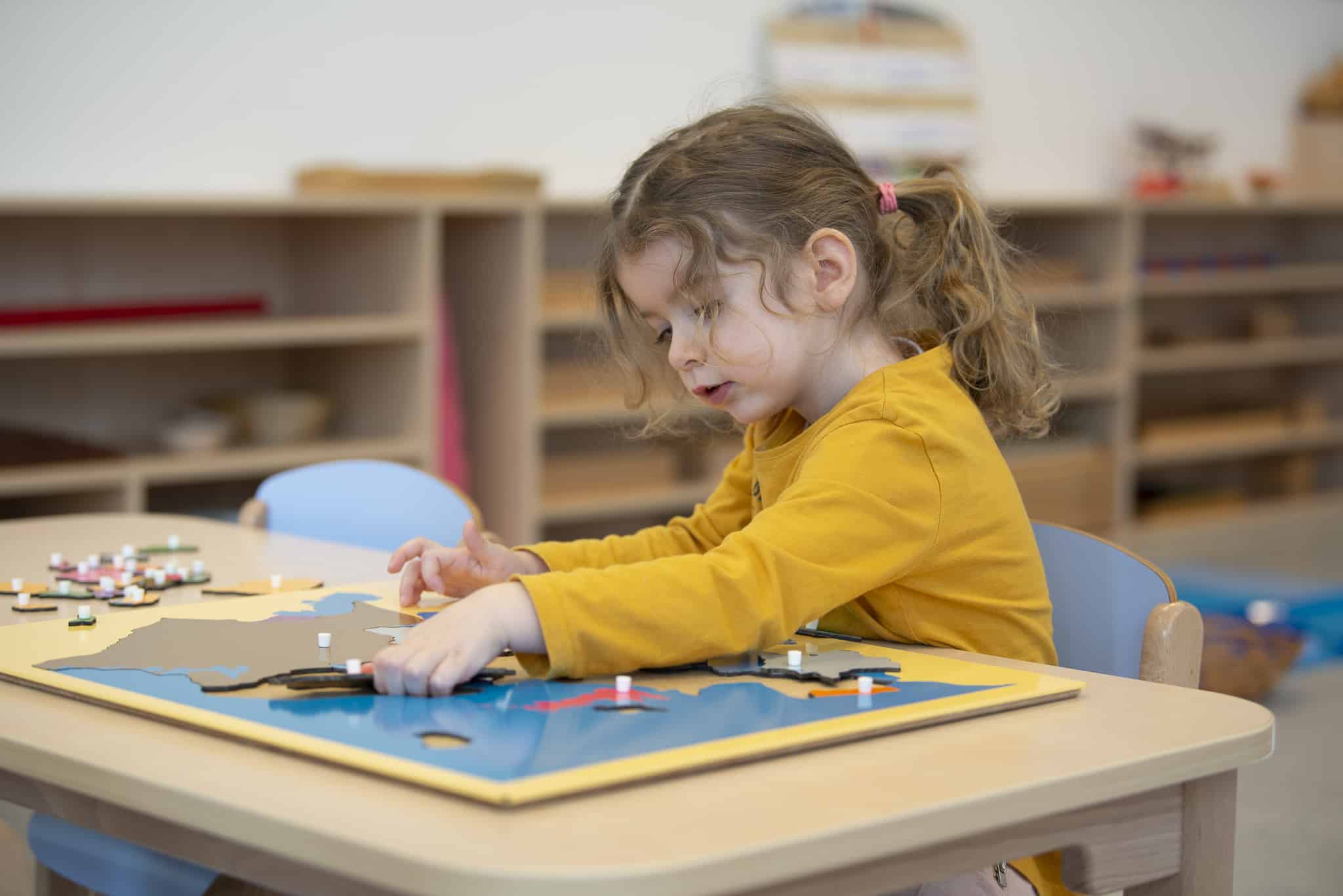
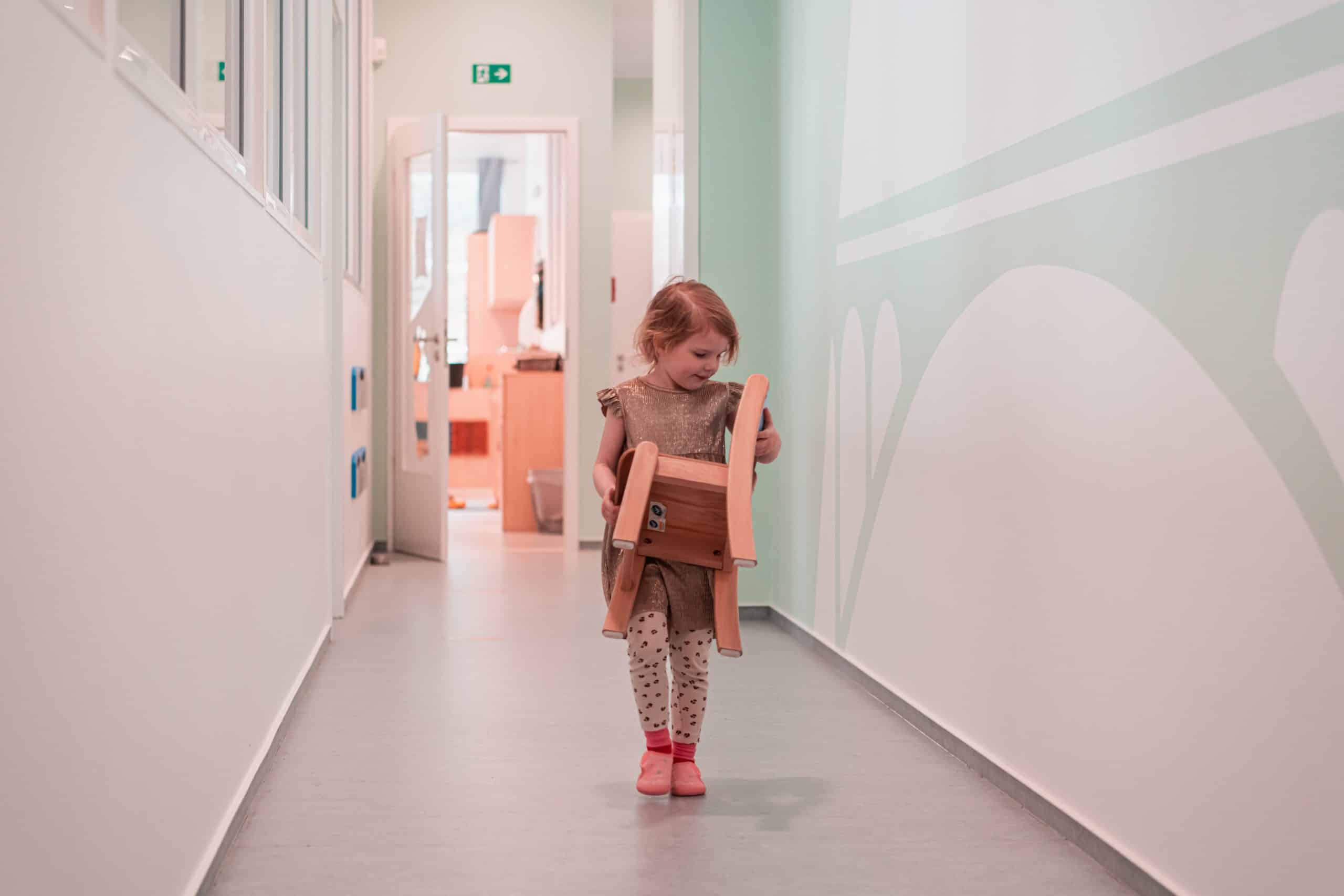
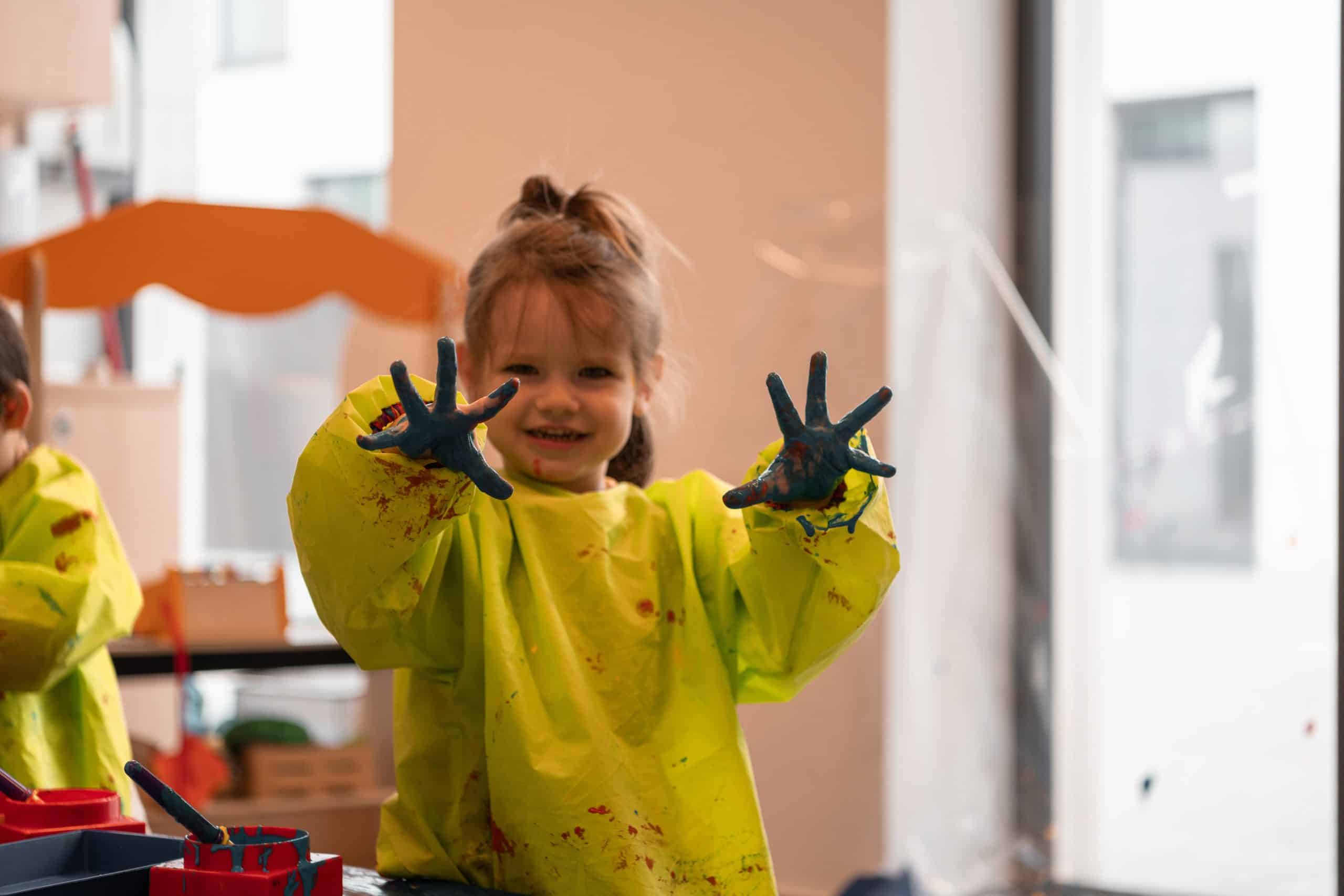
Quels sont les besoins de l'enfant ?
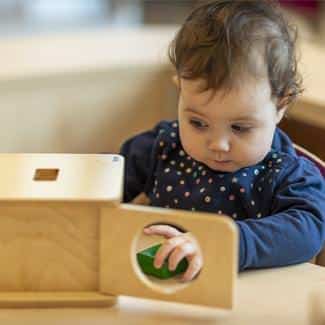
Autonomie
L’autonomie est un besoin fondamental de l’enfant : « Aide-moi à faire seul. »
L’enfant veut faire seul, il doit pouvoir faire les expériences de la vraie vie et pas seulement faire semblant avec des jouets.
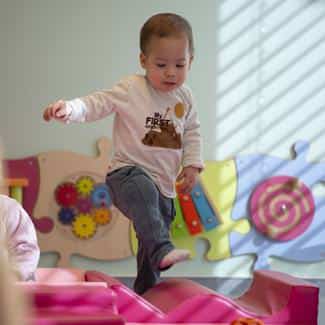
Mouvement
L’enfant a besoin d’être libre de ses mouvements : coordination des mouvements et répétitions permettent à l’enfant de développer sa force, son intelligence, sa confiance en soi, sa motivation, sa persévérance et sa psychomotricité. Il ne doit pas rester assis à une table toute une matinée.
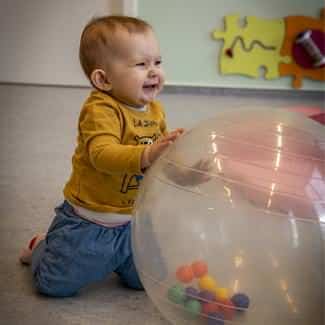
Liberté
La liberté : de choix, de mouvement, de temps. C’est ainsi qu’il forge son individualité.
Et il ne faut pas confondre liberté et « laisser-faire » car, dans notre pédagogie, la liberté forme la deuxième face d’une médaille avec la discipline. « Liberté et autodiscipline » vont de pair.
Maria Montessori
The educational theorist who revolutionised history
Maria Montessori, an Italian doctor and pedagogue (1870-1952), is a leading figure in education. Her groundbreaking pedagogical approach, rooted in scientific observation and a profound respect for children’s natural development, revolutionized the way we understand and nurture their learning. A prolific lecturer and author, she disseminated her philosophy in books such as “L’Enfant”. Her legacy is huge: she paved the way for child-centred education and inspired generations of educators and parents